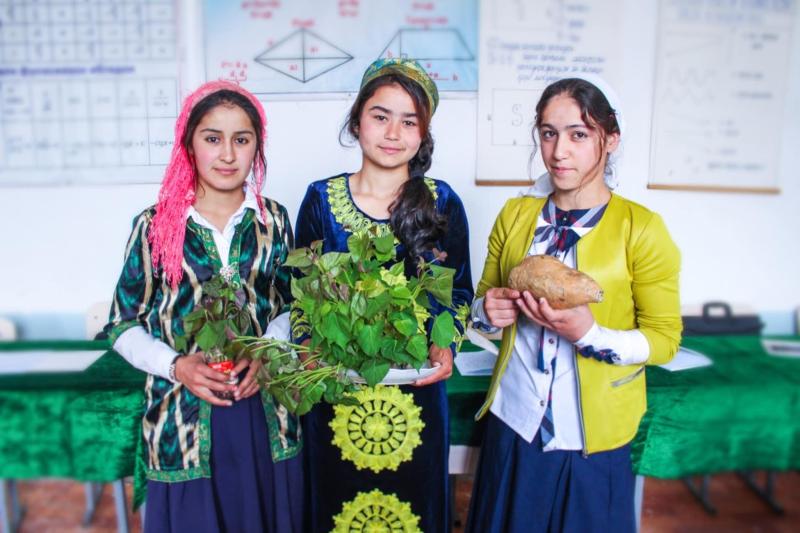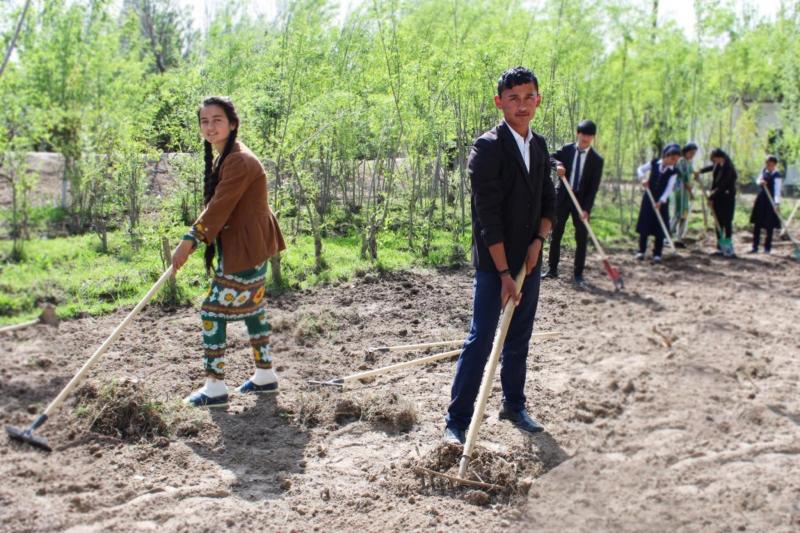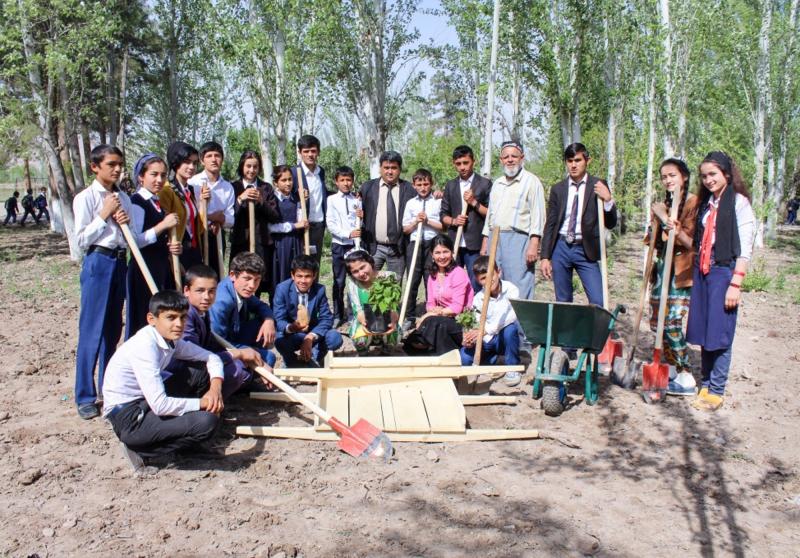Where We Work
See our interactive map


Thanks to a small grant from IntraHealth's Feed the Future Tajikistan Health and Nutrition Activity, these high school students have the tools they need to learn more about the practical agrarian topics they're interested in. And they're already teaching what they've learned to the younger grades. Photo by Khosiyatkhon Komilova.
These students are learning about soil management, crop rotation, safe drinking water, and much more.
As part of their vocational training, high school students in rural southwestern Tajikistan usually work in the school garden. This year, however, students learned more than how to grow vegetables and take care of fruit trees: they learned about the basics of nutrition and are now sharing that information with their classmates.
Along with topics like soil management and crop rotation, now students also learn about safe drinking water, sanitation and hygiene, and even household budget management.
With the help of the Feed the Future Tajikistan Health and Nutrition Activity, which is led by IntraHealth International, 30 students and 10 of their teachers now teach other students about the importance of nutrient-rich foods, underscoring the importance of the school garden for their health and nutrition.

"Beginning in mid-March, our students begin their practical work in the school gardens," headmaster Kholov says. "It was a bit difficult since we lacked basic gardening tools." A small grant helped change that. Photo by Khosiyatkhon Komilova.
Throughout their training, the students showed great interest in agrarian topics. To support this interest, the school headmaster, Mr. Kholov, approached IntraHealth's team with a request for basic agricultural tools to help students as they worked in the school gardens.
“We have approximately a half hectare of land with different types of fruit trees," Kholov says. "Beginning in mid-March, our students begin their practical work in the school gardens. It was a bit difficult since we lacked basic gardening tools. Feed the Future, however, gave us a small grant for all the tools necessary for gardening. Now our students are more engaged and peer educators have already begun teaching the younger grades.”
In addition to gardening tools, the Tajikistan Health and Nutrition Activity provided vegetable seedlings to expand the school gardens. Cauliflower, broccoli, cucumbers, and tomatoes now provide nutritious food for school lunches, and more importantly, help to address child malnutrition—a persistent problem in Tajikistan.
The activity team also partnered with the International Potato Center to introduce orange-fleshed sweet potatoes, a new crop in Tajikistan, to the school garden.

The students with their new gardening tools and seedlings. Photo by Khosiyatkhon Komilova.
Rayhona Mustafoqulova, an 11th grader, says, “The most interesting topics were on sweet potatoes: preparation of cuttings and soil, planting, agricultural technology, harvesting, storage, insects, and disease. These topics were really new and helpful.”
As America's global hunger and food security initiative, Feed the Future works to give families and communities in some of the world’s poorest countries the freedom and opportunity to lift themselves out of food insecurity and malnutrition.
By equipping people with the knowledge and tools to feed themselves, Feed the Future addresses the root causes of poverty and hunger, helping people end their reliance on assistance, and creating important opportunities for a new generation of young people—all while building a more stable world.
The Feed the Future Tajikistan Health and Nutrition Activity is led by IntraHealth International with funding from the US Agency for International Development.
This post was originally published by USAID Central Asia.
Get the latest updates from the blog and eNews




